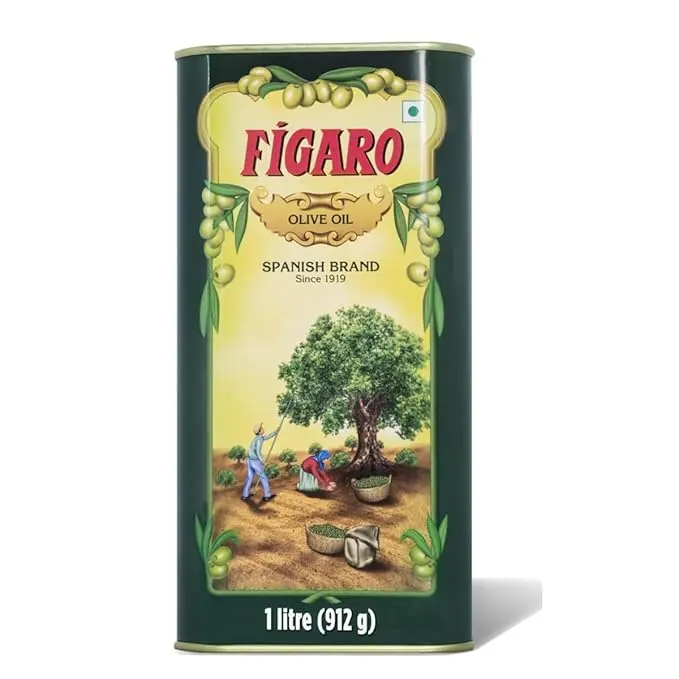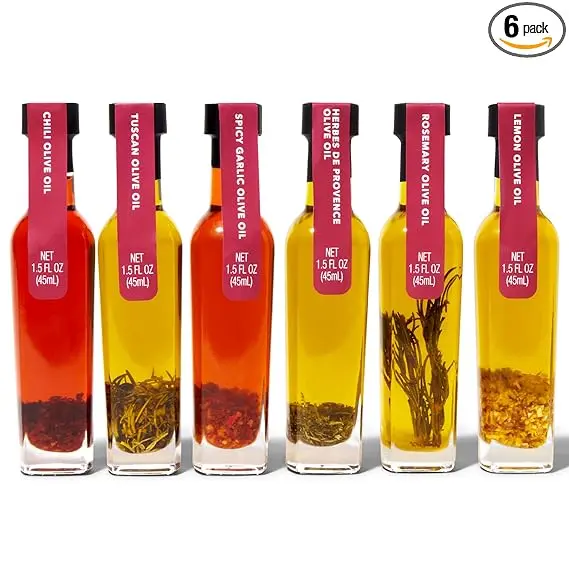OLIVE OIL HEALTHY VERSATILE SMOOTH
Table of Contents
HISTORY OF OLIVE OIL IN MOROCCO
Olive trees were cultivated in Morocco over thousands of years. Some experts tracing their roots within the region as far back as early Phoenician time. Olive oil was utilized not solely for cooking but to light lamps, for medical purposes and for ceremonies of religious significance.
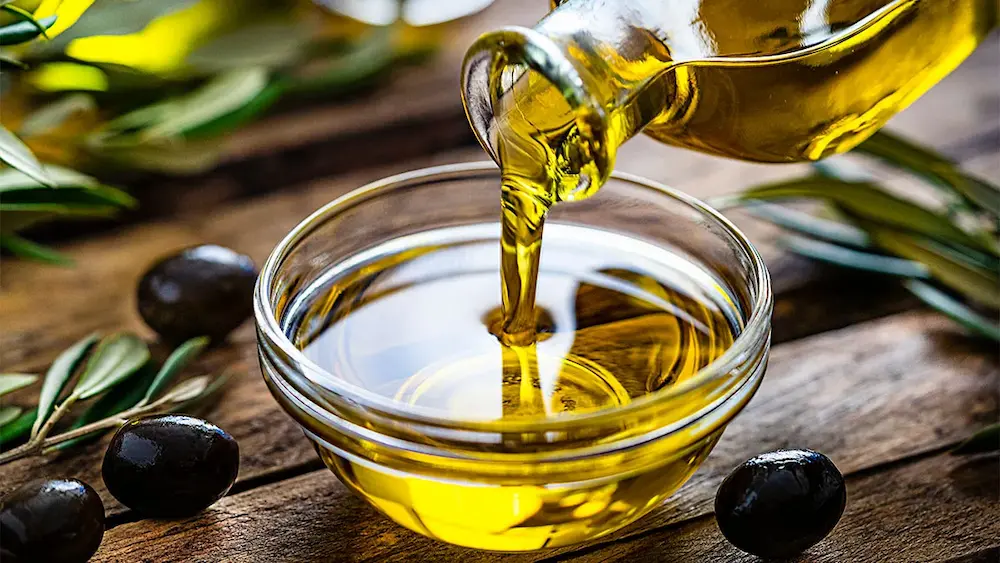
EARLY BEGINNINGS
The olive tree farming in Morocco is traceable in the early expansion of the Roman Empire, which was when they introduced olive trees into North Africa. At this point, when the tradition of production of olive oil started to develop. Since Morocco was incorporated into the Mediterranean trade in olive oils and production methods in the country improved.
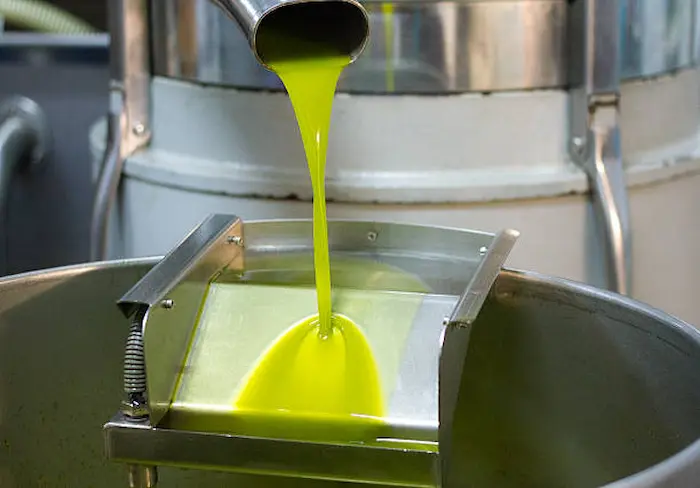
MODERN OLIVE OIL INDUSTRY
Nowadays, Morocco ranks among the leading olive oil producers around the world. Moroccan olive oil has earned an international reputation due to its exceptional quality and distinct taste, often called a fruity sharp, and a little spicy final. The rich past, coupled with Morocco’s dedication to sustainable and organic practices have helped cement the place of Morocco on the world landscape of oil.
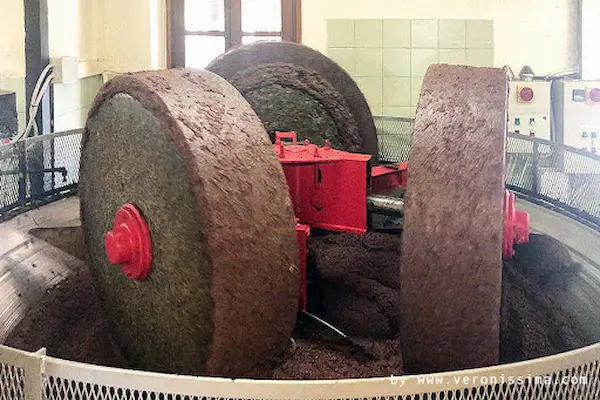
HOW OLIVE OIL IS MADE IN MOROCCO
The production of olive oil in Morocco is typically based on the traditional, time-honored practices, however the latest technology has been integrated in some regions.
Harvesting
Harvesting for olives typically occurs between November to February. The olives are picked by hand or shook gently from tree to keep them from bruising that can influence the quality of the oil. Moroccan olive farmers usually opt for the manual method of harvesting, as it maintains the purity of olives and ensures a quality production.
Pressing
When the olives are harvested, they are swiftly transported to nearby mills to be pressed. The most traditional process involves crushing the olives using stone mills, which produce the form of a paste. The resulting paste is laid on mats, and then squeezed for oil extraction. Modern cold-pressing techniques are becoming increasingly utilized to extract oil with no burning, which preserves the delicate flavors and the nutrients.
Filtering and Bottling
After pressing after which the oil is extracted and cleaned to get rid of the contaminants. The end result is an oil that’s golden green, delicious, tasty, and brimming with nutrients for health. The oil is then packaged or labeled and then available locally or sold internationally.
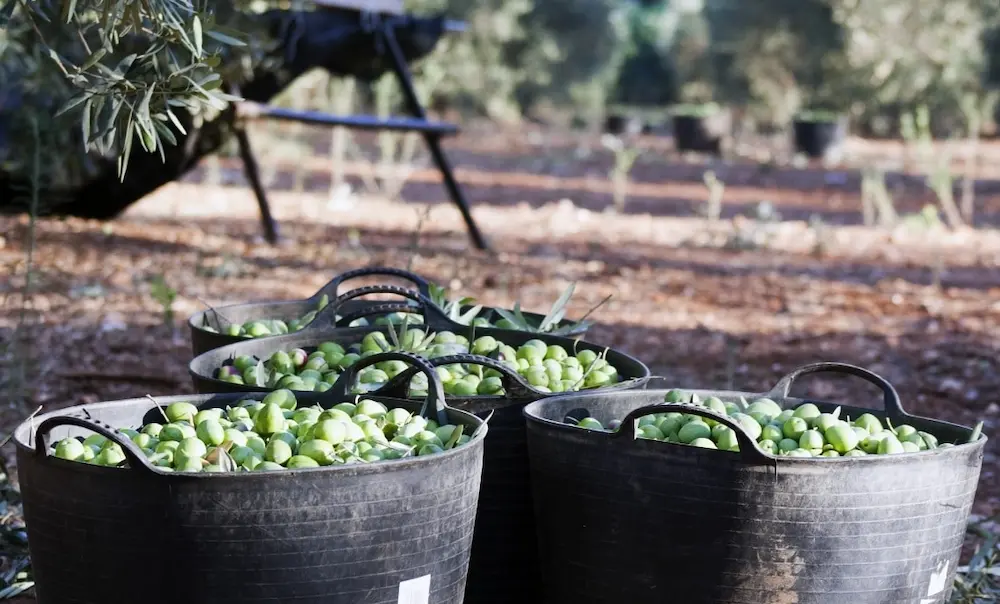
TOP OLIVE OIL PRODUCING REGIONS IN MOROCCO
The olive-growing areas of Morocco are situated in regions that have ideal conditions for growing olive trees, including mild winters as well as scorching summers that last for a long time.
Meknes
It is believed that the Meknes region is known for its production of some of the best olive oils from Morocco. The olives of the region are renowned for their rich, fruity tastes, and several of Morocco’s most renowned olive oil companies are situated there.
Fez-Mellah
Fez is yet another well-known oil-growing region, with many small-scale producers. The olive oils of the Fez region are often noted by their uniqueness and flavor profiles that range from creamy to a little bitter.
Marrakesh-Safi
It is the Marrakesh region, as well as the neighboring Safi can also be found contributing to the production of olive oils in Morocco. The region is known for producing stronger oils that have more pronounced, spicy flavor appearance.
Eastern Rif Mountains
The Rif Mountains, located in the northern part of Morocco has a lengthy history of cultivating olives. These olive oils of the region tend to be fresh, grassy aroma and floral undertones.
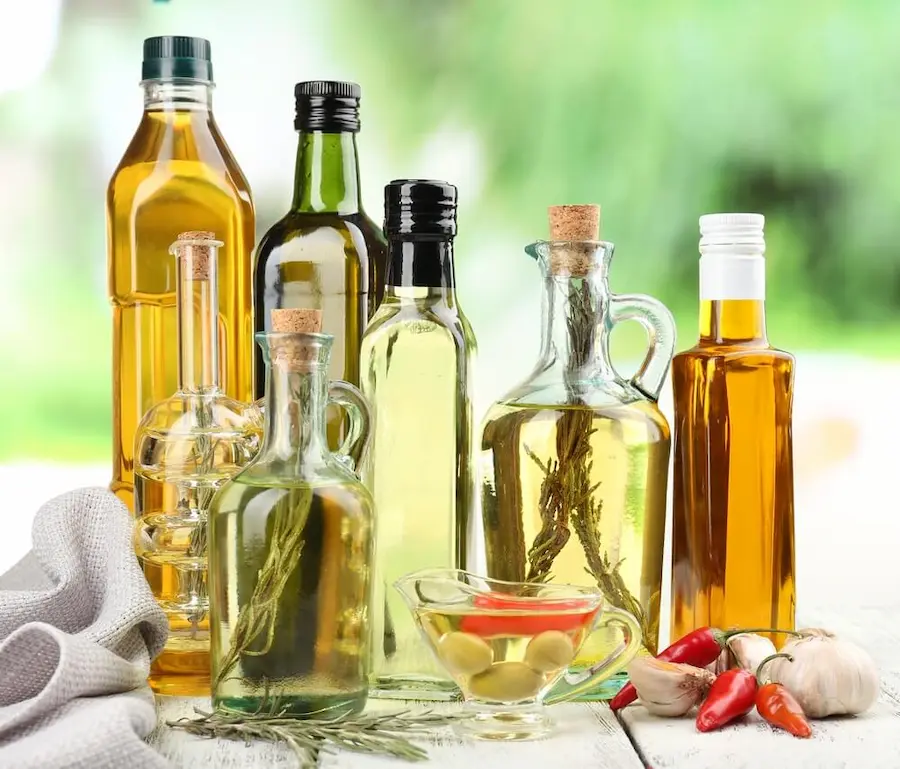
TYPES OF OLIVE OIL IN MOROCCO
Olive oil can be separated into grades that are which are defined based on their process of production, acidity levels and taste quality.
Extra Virgin Olive Oil (EVOO)
Extra-virgin olive oil has of the best quality oil that is offered. It is extracted by cold pressing and comes with low acidity, less than 0.8 percent. Moroccan EVOO is known for its strong scent as well as its bold taste and moderate acidity. It is extremely sought-after.
Virgin Olive Oil
Virgin olive oil is manufactured by cold pressing however it with a higher acidity amount (up to 2percent). It is commonly utilized in cooking for everyday use.
Pure Olive Oil
It’s a mixture between refined and virgin olive oil that provides an edgier taste, and a lower price. While it doesn’t have the distinctive flavours that you get from EVOO however, it is widely utilized in Moroccan families to cook with.
Pomace Olive Oil
The oil comes by removing the pulp of olives after pressing. Although it’s the least priced, it doesn’t have any of the taste or health qualities of oils with higher grade. The most common use for it is for cooking or for industrial use.
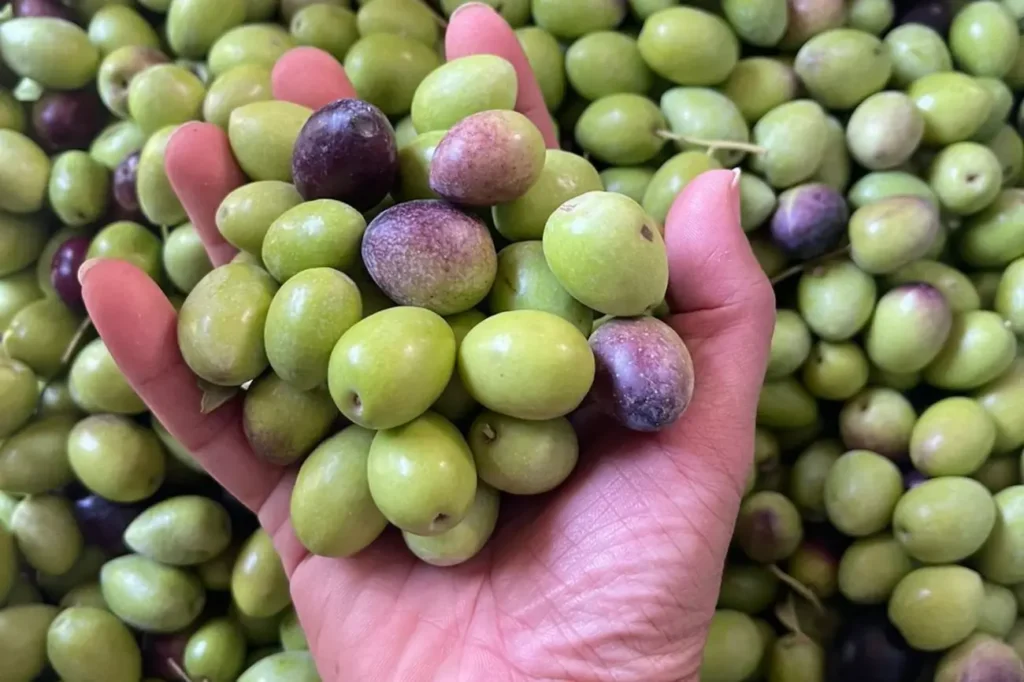
WHAT MAKES MOROCCAN OLIVE OIL UNIQUE?
Many factors are responsible for the distinctiveness in Moroccan olive oil.
Indigenous Olive Varieties
One of the factors that sets Moroccan olive oil from other oils is the inclusion of local olive varieties such as that of Picholine Marocaine. These olives possess a distinct flavor that gives the oil a strong sweet, fruity, and often spiced flavour.
Climate and Terroir
Its Mediterranean climate, in conjunction with the fertile soils in the regions that grow olives in Morocco, adds to the distinctive flavor that is characteristic of Moroccan olive oils. Long, hot winters and cool summers impart perfect conditions for the cultivation of olives. The result is oils that have a deep, distinctive taste.
Traditional Farming Practices
The majority of Moroccan olive farmers still rely on the traditional methods of farming which include organic farming methods. This, in conjunction with the latest technology, assure that the oil is of top quality, while being also environmentally green.
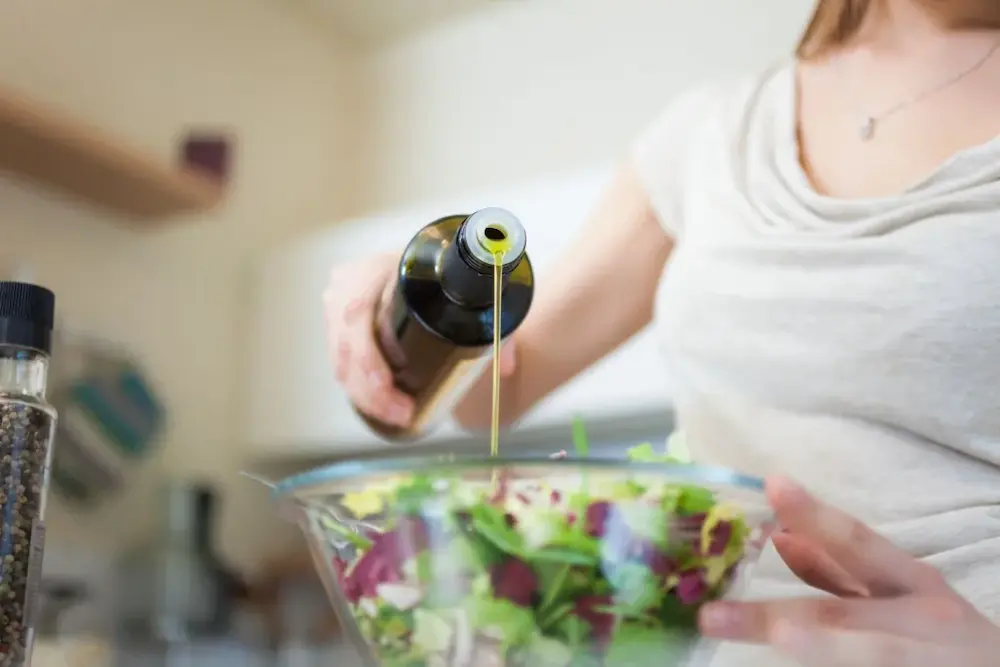
HEALTH BENEFITS OF MOROCCAN OLIVE OIL
Moroccan olive oil especially extra virgin, is renowned for its many health benefits. These could be due in part to the significant material of monounsaturated fatty acids, antioxidants, as well as other health-promoting components.
Heart Health
Olive oil is well-known due to its benefits for heart health. It can benefit lower the levels of harmful cholesterol (LDL) as well as increasing healthy cholesterol (HDL) that may benefit reduce the chance of developing heart disease.
Anti-inflammatory Properties
The polyphenols present in Moroccan olive oil are powerful anti-inflammatory properties. A regular intake of olive oil may benefit to reduce inflammation in the body. It can lead to lower likelihood of suffering from chronic diseases like diabetes, arthritis and some cancers.
Antioxidant Power
Moroccan olive oil high in antioxidants. It is also rich in vitamin E that helps to protect your body from the effects of oxidative stress and some damages caused by free radicals. The antioxidants are also responsible for the oil’s capacity to benefit promote good skin health and reduce the process of aging.
Digestive Health
Olive oil can be gentle to the digestive system, and may benefit to prevent issues with digestion like constipation. It can also boost an boost in the amount of bile and helping to digest fats.

HOW TO USE MOROCCAN OLIVE OIL IN COOKING
Moroccan olive oil can be extremely adaptable in kitchens. Its distinctive flavor is able to elevate the traditional Moroccan recipes and contemporary, international culinary.
Drizzling and Dipping
Extra virgin olive oil ideal to drizzle over vegetable salads, grills or bread. In Morocco typically, it’s served with warm bread serving a light but delicious snack.
Cooking and Frying : can you fry with olive oil ?
Extra virgin olive oil should be accurate consumed raw in order to retain the flavor and nutritional value Pure olive oil may be used to saute and frying or roasting. The smoke value for Moroccan olive oil tends to be large, which makes it appropriate to be used in a variety of cooking techniques.
Baking
Olive oil may be utilized in baking to provide an alternative to butter and other oils. The mild fruity taste can be found in delicious cakes, breads, and desserts.
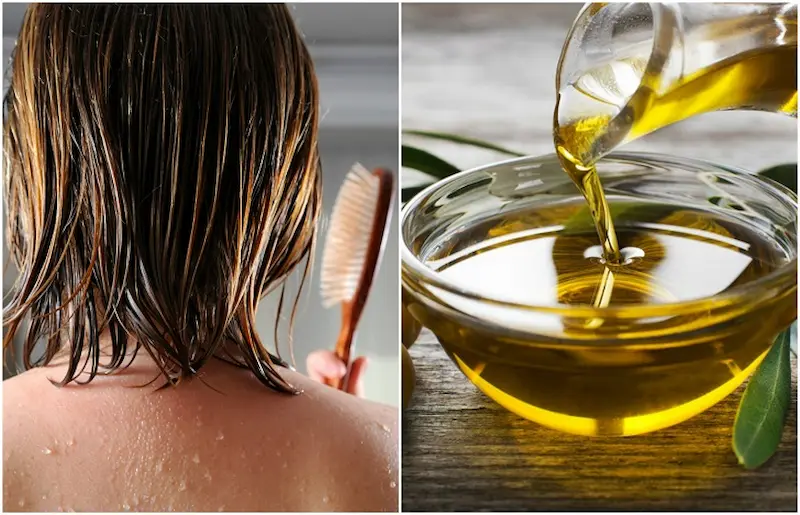
MOROCCAN OLIVE OIL IN SKINCARE AND BEAUTY
Beyond the kitchen Moroccan olive oil can be praised because of its application in skincare and beauty.
Moisturizing Properties
High in vitamin E and antioxidants, the substance olive oil makes an effective natural moisturizing agent. It is able to be sprayed directly on the skin’s surface to moisturize and soften skin, which makes it a common ingredient in Moroccan beauty routines.
Hair Care
In Morocco the olive oil is frequently employed as a treatment to deep condition for hair. It can benefit nourish hair and boost its strength, making it shiny, smooth and less vulnerable to breakage.
Anti-aging Benefits
Because of its high antioxidant content the olive oil may benefit to fight signs of aging. It protects the skin from damages generated by oxidation. frequent use of olive oil can result in a young, beautiful complexion.
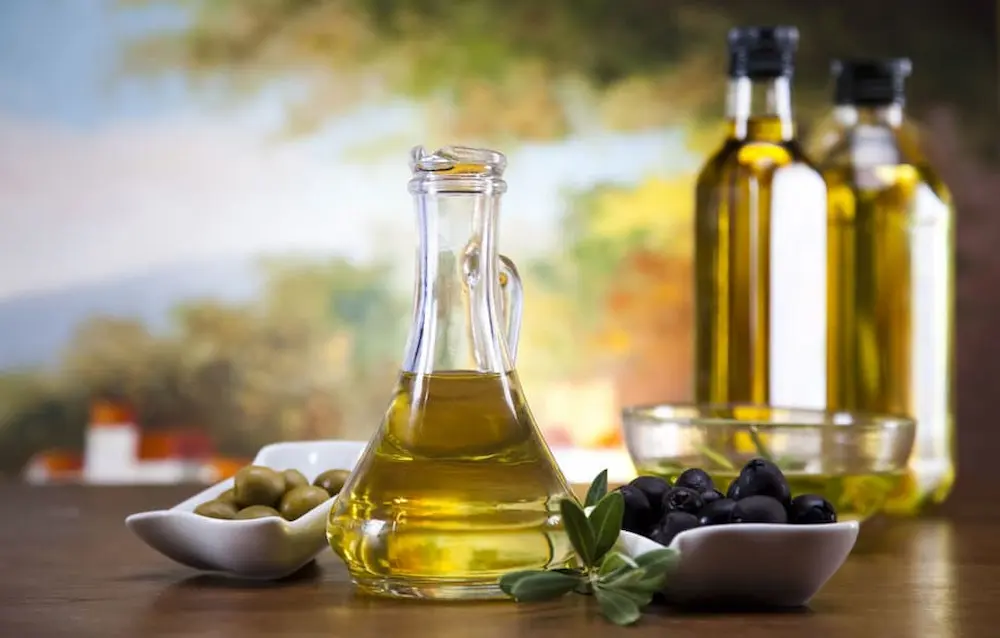
MOROCCAN OLIVE OIL: ORGANIC AND SUSTAINABLE PRACTICES
Morocco is more and more focusing on organic farming practices and sustainable methods of cultivation in order to satisfy the growing customer demand for eco-friendly goods.
Organic Certification
The majority of producers of olive oil across Morocco are adopting organic methods of farming and are avoiding chemical fertilizers and pesticides. Organically certified Moroccan olive oil has been sought-after for its purity as well as respect for the principles of sustainable farming.
Water Conservation and Eco-Friendly Practices
In light of the shortage of water in some parts of Morocco Many producers are implementing water-saving irrigation methods including drip irrigation. This will warrant that the cultivation of olives continues to be sustainable and eco-friendly.
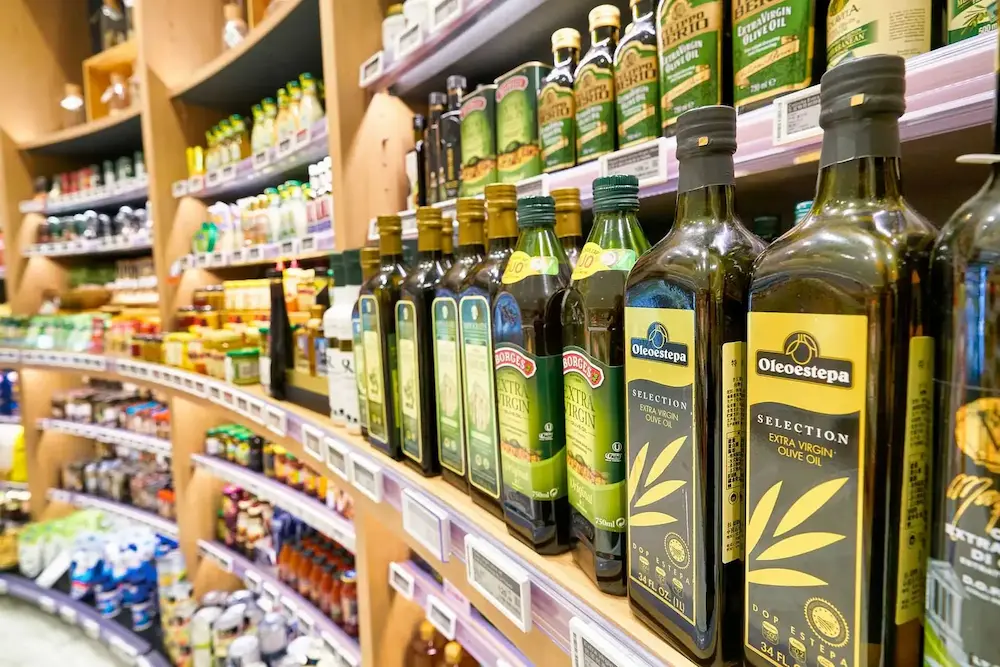
WHERE TO BUY BONA FIDE MOROCCAN OLIVE OIL
If you’re planning to buy real Moroccan olive oil there’s many options to warrant that you’re receiving only the desirable high-quality.
Local Markets
In Morocco Olive oil is offered at souks (traditional markets) all over the nation. There are places, like Marrakech and Fez You can purchase quality, fresh olive oil made by small local producers.
Specialty Stores and Online Retailers
Outside of Morocco Many online stores as well as specialty food stores provide Moroccan olive oils. If you purchase on the internet, be sure to seek out oils marked “extra virgin” and check to see if there are any original certifications.
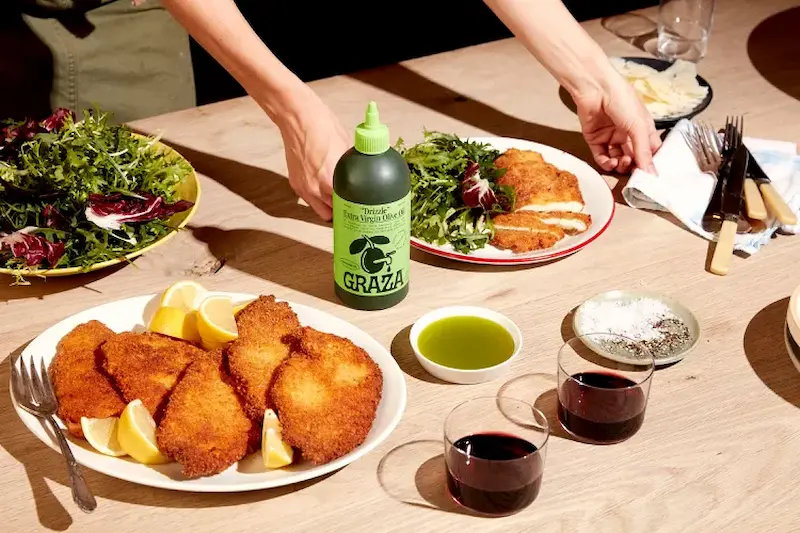
OLIVE OIL IN OTHER COUNTRIES
Graza Olive Oil stands out from the crowd of olive oil due to its dedication to the production of fresh, tasty sustainable, and sustainably-sourced extra-virgin olive oil. It is made entirely from Spanish olives, the Graza Olive Oil is made using the most precise cold-pressing technique to ensure the oil’s natural nutritional value and enticing flavors. Graza’s approach is to focus on freshness by ensuring that the olives are picked at the peak of quality and then pressed in just a few hours and this payoff in a oil that has an intense, fruity flavor with hints of pepper and a soft end.
What makes Graza distinct is its emphasis on ease of use and convenience. Graza has two major kinds: “Sizzle,” a multi-purpose cooking oil ideal to fry and saute in addition to “Drizzle,” a finishing oil that is ideal for salads, breads and other dishes that require garnishing. Both oils are loaded with benefits for health, such as the heart-healthy monounsaturated oils as well as antioxidants.
Graza’s focus on sustainability and transparency is important to the appeal of its brand. Graza’s brand is a proponent of traceability and focuses on working with farmers who are small and adhering with sustainable agriculture methods. The eco-friendly packaging that reduces the amount of waste produced, is a perfect complement to their goal of providing a premium product that’s beneficial to humans and the earth. If you’re a cook at home or are a food enthusiast, Graza Olive Oil elevates your meals every day with its the rich and real tastes.
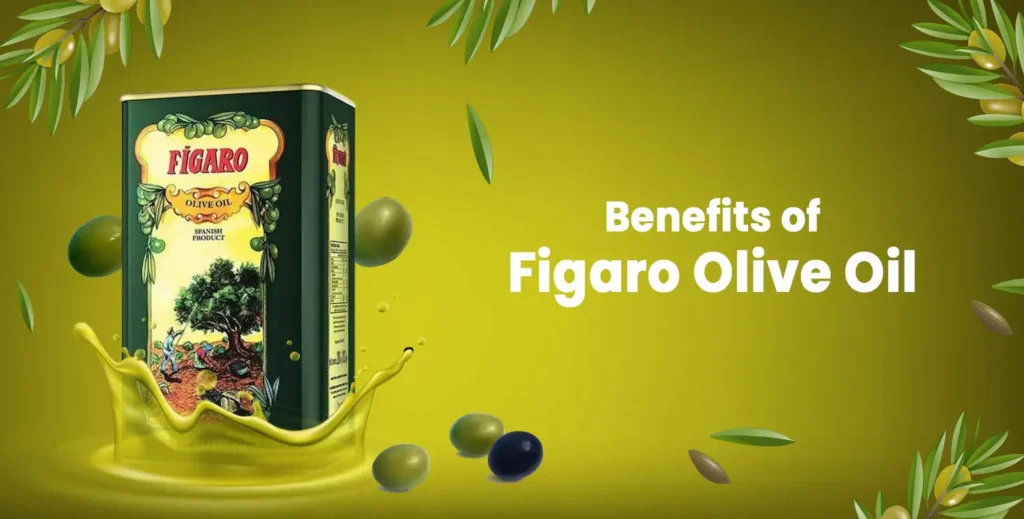
FIGARO EXTRA VIRGIN OLIVE OIL
Is an oil of premium quality which has been gaining popularity due to its high-quality and flexibility for cooking. Here are a few of the key features that Figaro Extra Virgin Olive Oil has to offer
Key qualities
- Origin Origin: Primarily sourced from Spain and is well-known for its premium olives. The company insists on the use of particular regions that are that are known for their perfect weather and soil conditions that are ideal to cultivate olives.
- Production The olives are cold-pressed. This means that they’re harvested without the necessity of heating and helps retain the oils natural taste, aroma and nutritional benefits.
- High Quality Standards In its capacity as extra virgin olive oil it meets the highest high-quality standards. These include:
- Low Acidity Lower than 0.8 percent, which indicates the oil’s quality and freshness.
- Flavor A fruity, rich flavor that has a slightly spiced finish. This makes it appropriate to be used in a wide range of cooking applications.
Nutritional Benefits
- A rich source of antioxidants It is a source of polyphenols as well as vitamin E. These benefit fight oxidative stress and help reduce inflammation throughout the body.
- heart-healthy fats high in monounsaturated fatty acids which have been proven to aid in the cardiovascular system.
- Anti-Inflammatory Property Consuming regularly may help reduce inflammation as well as an increased risk of developing chronic ailments.
Culinary Uses
- Salads and Dressings Great for drizzled on salads, or adding to dressings.
- Cooking Perfect for roasting, sauteing or grilling. It’s desirable to cook it on moderate to low heat in order for optimal health.
- Dipping: A favorite choice to dip bread into, usually served with balsamic vinegar or spice.
Packaging
Figaro Extra-Virgin Olive Oil can be found in various sizes. Typically, it is inside dark glass bottles that shield it from light which could degrade the oil in time.
Availability
It is possible to find the Figaro Extra Virgin Olive Oil in several grocery stores, on-line stores, as well as specialty stores for food, especially in areas that are where Mediterranean food is very popular.

CAN DOGS HAVE OLIVE OIL ?
It is true that dogs are allowed to consume olive oil and can bring several health benefits when it’s included in their diets with moderation. Olive oil that is extra virgin can be particularly beneficial because of its substantial material of monounsaturated fatty acids, antioxidants and vital vitamins like Vitamin E and omega-3 acid. These substances can be beneficial to the overall health of a dog and improve everything including their coat and skin as well as their overall health.
KEY BENEFITS OF OLIVE OIL FOR DOGS:
Healthy Skin and Coat The high material of Omega fatty acids as well as antioxidants can benefit moisturize your dog’s skin while reducing flakiness and itching. Also, it helps to aid in achieving a soft, shiny coat. This makes it especially suitable for dogs who have rough or dry skin.
Improved digestion Olive oil acts as a natural aid to digestion. It aids dogs in processing foods more definitely and even ease some constipation symptoms by lubricating your digestive tract. Small amounts of olive oil can boost bile production and helps in digestion of fats.
Heart Health Monounsaturated fats in olive oil are renowned as heart-healthy ingredients. They are able to benefit to reduce inflammation and decrease the bad cholesterol level in dog. This is beneficial for the health of your heart. The healthy fats are particularly beneficial to older dogs or breeds that are prone to heart problems.
Weight Management: Though it’s not exactly intuitive however, having a little olive oil added to a dog’s diet may benefit in weight control. Healthy fats prepare an energy source and can benefit pets feel fuller for longer and less inclined to eat more. But, being mindful of portion sizes is essential as olive oil has a high calorie content.
Anti-inflammatory effects: The polyphenols and oleocanthal substances in virgin olive oil possess natural anti-inflammatory qualities, and could benefit ease joints and arthritis discomfort in dogs who are older or sufferers of chronic illnesses. It makes olive oil the ideal supplement for elderly breeds or dogs with a predisposition to joint problems.
Immune System Supplementation: The antioxidants present from olive oil, specifically vitamin E benefit to strengthen the immune system of dogs. It can benefit protect cells from destruction caused by free radicals, making a possibility to lowering the chance of developing chronic illnesses and increasing long-term health.
The health of the brain Olive oil also has been found to aid in improving the cognitive functions of canines. Fat acids and antioxidants are able to boost brain health and is particularly important in dogs that are elderly or suffering from cognitive decline with age.
HOW TO GIVE OLIVE OIL TO DOGS:
In the event of introducing olive oil into your pet’s diet It’s crucial to start by introducing small quantities and warrant that the food is prepared in an order that is safe and effective. The standard recommendation is 1 teaspoon of olive oil for each 20 pounds bodyweight. It can be sprinkled over the food they eat at least once a week. Make sure to use virgin olive oil since it’s the most unprocessed and also has the highest level of healthy nutrients.
Guidelines for Giving Olive Oil to Dogs:
- small dogs (up to 20lbs) : 1/2 teaspoon to 1 teaspoon each food.
- Medium-sized dogs (20-50 kilograms) : 1 to 2 teaspoons of food per portion.
- Large dogs (50+ pounds): 1 tablespoon per meal.
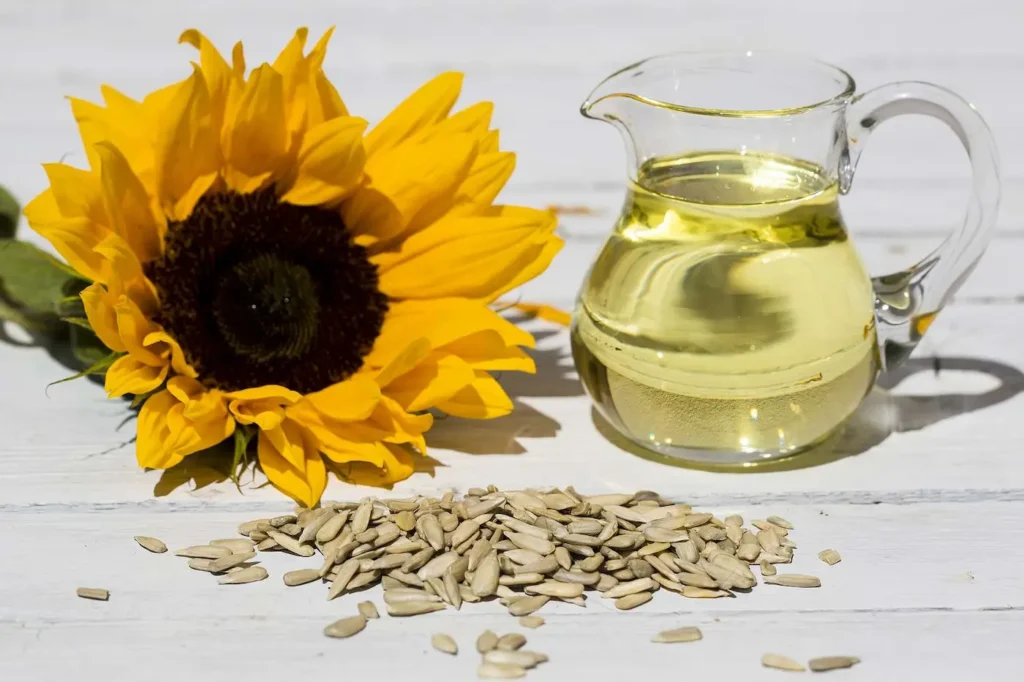
IS OLIVE OIL A SEED OIL ?
Olive oil does not fall under the category of seeds oils as its source is fruit-derived rather than seed sourced; olive oils come from fleshy portions from olive fruit while seed oils typically come from kernels or seeds of plants; this difference has profound ramifications on extraction procedures, flavor profiles, nutritional contents as well as culinary applications of both types of oils.

OLIVE OIL VS SEED OIL: EXTRACTION AND COMPOSITION
Olive Oil Extraction:
The olive oil extraction full process typically includes cold-pressing the flesh of an olive, where its oils reside, to extract its contents. Traditional methods involve crushing olives into paste before pressing until oil releases from it. Today’s more modern methods, like cold pressing, help preserve both flavor and nutrients that could diminish through heating processes that might alter its quality over time.
Cold Pressing: For optimal quality extra-virgin olive oil production, cold-pressing methods offer the ideal way to produce it. By keeping temperatures to no higher than 27 degrees Celsius (80degF), this ensures taste as well as nutritional benefit remain preserved in each bottle produced.
Olive oil is good for monounsaturated fats to have a good diet program, especially Oleic acid, known to improve heart health, reduce inflammation and boost antioxidant protection against the harmful effects of oxidative stress. Furthermore, olive oil provides vitamins E and K along with anti-inflammatory compounds known for helping develop its healing benefits.
Seed Oil Extraction:
Sunflower, canola and soybean oils all originate in plant kernels/seeds that have been extracted using pressing, chemical extraction with solvents like hexane to increase yield or refinements such as heating/processing to rid themselves of impurities that might diminish essential nutrition in their formulation.
Most seed oils contain polyunsaturated fatty acids like omega-6 fatty acids that may provide health benefits when consumed in moderation; however, in excess they may increase inflammation. Some seed oils such as flaxseed and chia seed oils contain omega-3 fatty acids known for their anti-inflammatory qualities and should therefore only be taken in limited amounts.
What Are The Nutritional Differences Between Olive and Seed Oils?
Olive Oil’s Fatty Acid Composition :
As its composition predominantly contains monounsaturated fats (mainly Oleic acid) olive oil is widely recognized for improving cardiovascular health by decreasing LDL (bad cholesterol) while providing anti-inflammatory benefits and providing stability against oxidation; making olive oil ideal to cook with in moderate temperatures.
Seed Oils:
Seed oils have high levels of polyunsaturates and omega-6 acid fatty acids which have numerous health benefits; however, modern diets often include too much omega-6 without adequate levels of suitable omega-3. While omega-6s have their place, an imbalance often exists where there’s too much omega-6 for good health while not enough suitable omega-3 is consumed – this could cause long-term inflammation in some individuals and could even increase risks to health in some.
CONCLUSION
The olive oil offers far more than just a food staple and a source of many advantages for health, significance to culture as well as environmental sustainability. Its flavorful aroma enhances meals as well as promoting heart health in addition to anti-inflammatory as well as antioxidant protection. With increasing awareness of the significance of eating mindfully and using high-quality ingredients, adding the highest-quality olive oil into our daily diets will benefit promote health and well-being as well as culinary pleasure. If we select original olive oil, you don’t just help our bodies, but we respect the past and the communities that have shaped this amazing ingredient. When drizzled over salads cooked in or in a dip, olive oil is a precious ingredient that is worthy of a spot in the kitchen of every home.
You might also enjoy these articles

MARRAKECH MENARA GARDEN: A HISTORICAL CULTURAL AND NATURAL OASIS
Table of Contents INTRODUCTION Nestled within the middle of Marrakech, a city known for its lively tradition, rich past and

Useful services Marrakech tourism attractions transportation
Introduction : Marrakech, commonly referred to as Morocco’s Jewel City due to its famous reddish-pink buildings and walls, has long

IS MARRAKECH SAFE? TRUST YOUR INSTINCTS
Table of Contents INTRODUCTION Marrakech, often dubbed “The Red City of Morocco”, can be identified with its walls made of

